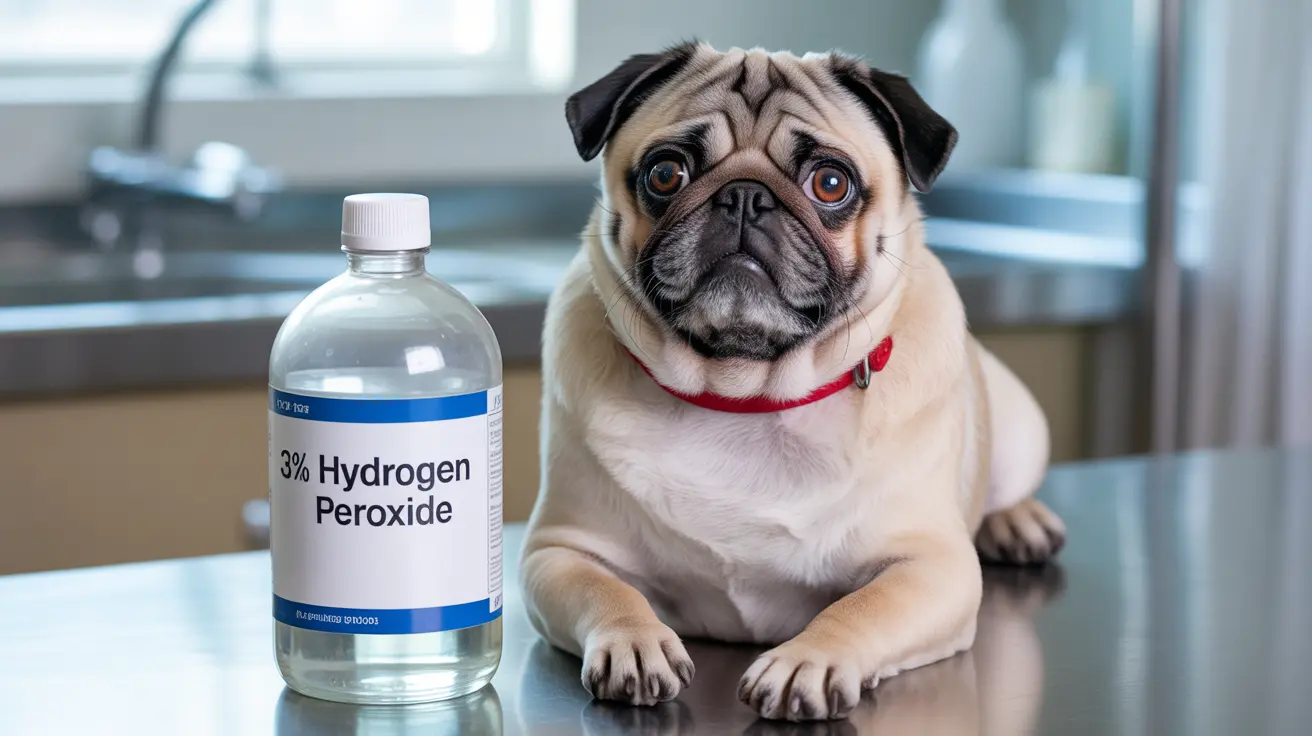As a pet owner, you might be wondering about using hydrogen peroxide on your dog, whether for wound cleaning or emergency situations. This comprehensive guide will explore the safety considerations, proper uses, and potential risks of hydrogen peroxide for dogs, helping you make informed decisions about your pet's care.
While hydrogen peroxide is a common household disinfectant, its use on dogs requires careful consideration and, in most cases, professional veterinary guidance. Let's examine when it's safe to use hydrogen peroxide on dogs and, more importantly, when it's not.
Understanding Hydrogen Peroxide and Dogs
Hydrogen peroxide is a chemical compound that creates a fizzing action when it comes into contact with organic material. While this bubbling effect might seem beneficial for cleaning wounds, it can actually cause more harm than good in most situations involving dogs.
The most common concentration available for household use is 3% hydrogen peroxide, which is the only concentration that should ever be considered for use with dogs, and only under specific circumstances.
When Hydrogen Peroxide Should Never Be Used
Despite common misconceptions, hydrogen peroxide should not be used for routine wound care in dogs. Here's why:
- It damages healthy tissue along with bacteria
- Delays wound healing by destroying necessary cells
- Causes unnecessary pain and discomfort
- Can lead to scarring
- May result in tissue irritation
The Only Approved Use: Inducing Vomiting
The single veterinary-approved use of hydrogen peroxide in dogs is for inducing vomiting in specific poisoning cases. However, this should only be done:
- Under direct veterinary guidance
- Using the correct 3% solution
- Following precise dosing instructions
- Within 2 hours of toxin ingestion
- When specifically recommended for the type of substance ingested
Safe Alternatives for Dog Wound Care
Instead of hydrogen peroxide, veterinarians recommend these safer alternatives for wound care:
- Sterile saline solution
- Veterinary-approved antiseptic solutions
- Diluted chlorhexidine
- Pet-specific wound cleansers
Professional Veterinary Guidance
Always consult your veterinarian before administering any first aid to your dog. They can provide:
- Proper assessment of the situation
- Specific treatment recommendations
- Correct dosing if vomiting needs to be induced
- Professional wound care when needed
- Emergency guidance in poisoning cases
Frequently Asked Questions
Is hydrogen peroxide safe to use on my dog's wounds?
No, hydrogen peroxide is not safe for cleaning dog wounds. It can damage healthy tissue, delay healing, and cause unnecessary pain. Use veterinary-approved wound cleansers or saline solution instead.
How do I safely make my dog throw up using hydrogen peroxide?
Only use hydrogen peroxide to induce vomiting under direct veterinary supervision. The typical dose is 1 teaspoon per 5 pounds of body weight of 3% hydrogen peroxide, but always confirm with your vet first.
What are the risks of using hydrogen peroxide on dogs?
Risks include tissue damage, delayed healing, pain, scarring, and potential complications if used incorrectly. For inducing vomiting, risks can include aspiration pneumonia and gastric irritation.
Are there safer alternatives to hydrogen peroxide for cleaning my dog's wounds?
Yes, safer alternatives include sterile saline solution, veterinary-approved antiseptics, and pet-specific wound cleansers. Always consult your veterinarian for proper wound care instructions.
Can I use hydrogen peroxide on my dog without consulting a veterinarian?
No, you should never use hydrogen peroxide on your dog without veterinary guidance. Improper use can lead to serious complications and delayed healing.
Remember, when in doubt about your dog's health or emergency care, always contact your veterinarian or local pet emergency clinic for professional guidance. Your pet's safety and well-being should always be the top priority.






